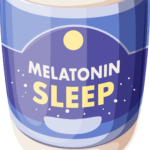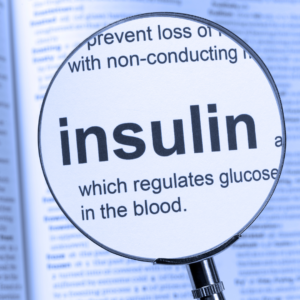(*NONE OF THIS IS MEANT TO BE MEDICALLY DIAGNOSITC. THIS IS FOR EDUCATIONAL PURPOSES ONLY. IF YOU FEEL LIKE YOU HAVE ANY OF THESE SYMPTOMS, PLEASE CONTACT YOUR MEDICAL PROFESSIONAL*)
I can’t tell you how many times I’ve heard or read some variation of the question:
“Why are my hormones all over the place?”
Many of us feel like our hormones are in complete chaos, and causing all sorts of problems in our body.
Believe me, I’ve felt that way too.
My goal in doing this is to educate and empower. I want you to understand what’s going on in your body, to have the information you need to make decisions or choices that you need to make, and to be able to know what changes to make to feel better.
Don’t worry, I’m not going to teach you about every single hormone in your body.
We are not endocrinologists!
But I will teach you about the ones to watch out for, what to be aware of, and what you have the power to work on yourself!
The good news is that the approaches to work on for most of these are almost exactly the same! You’ll see why when we get into the details.
Today we’re going to dive into the specifics of melatonin, and insulin.
These are less sexy hormones than estrogen and thyroid hormones.
They’re FAR less popular!
But they’re also super important.
And they’re part of the interaction between all of these hormones. So let’s take a look:
Melatonin
Melatonin is the hormone of sleep! When light levels drop as the day goes on and the sun sets, melatonin starts to be released. Melatonin doesn’t actually cause you to be tired and drowsy, it just makes your body more susceptible to sleep and the other processes that are happening in your body to get you ready for sleep.
Melatonin might have other roles in the body, but they’re not well understood.
Melatonin is actually connected to estrogen, in the fact that high levels of estrogen can actually inhibit melatonin production. So continuing to work on optimal estrogen is your best way to make sure that there is no hormonal interference with melatonin.

How to Optimize Melatonin
There are lots of other things you can do to optimize your melatonin, and if you struggle with falling asleep I recommend you start here:
- Get some sunlight on your eyes in the morning, when the sun is still low in the sky. It doesn’t need to be at sunrise, but within a few minutes of waking, head outside for 15-20 minutes to get some sunlight on your face.
- At the end of the day, start turning down/off the lights. The more dark, the better! If you need to use light, use dimmable lights, lights that are less bright, or lights that are lower to the ground (lamps compared to overhead lights).
- Don’t use blue blocker glasses during the day. Instead, pop them on later in the day.
- Avoid screens 2 hours before bedtime.
- No screens at all in the bedroom.
- Keep your bedroom as dark as possible.
- Eat foods high in tryptophan like chicken, eggs, fish, cheese, sunflower seeds, peanuts, and pumpkin seeds.
Melatonin Supplements
What about supplements? Melatonin is a common supplement that people reach for to help them sleep better.
It’s not usually the best solution for sleep issues, for most people. Sometimes it helps people fall asleep, but often it doesn’t make any difference, or it makes the person feel groggy the next day.
Insulin
Insulin is the hormone responsible for blood sugar and all its happenings in the body. Hypoglycemia (low blood sugar) can mean that insulin levels are too high, and hyperglycemia (high blood sugar) can mean that insulin levels are too low, or the body isn’t listening to the insulin.
While low blood sugar can be a problem for some people – they may experience symptoms like fainting, weakness, exhaustion, hunger – high blood sugar is the thing more people experience.
High blood sugar is complicated, but at a simplistic route, it’s the precursor to type 2 diabetes.
Insulin resistance – this is when enough insulin is produced, but the body doesn’t respond to it properly, which can result in high blood sugar again. This can also go along with irregular periods, polycystic ovarian syndrome (PCOS), and diabetes.

How to Normalize Insulin
What are the best ways to normalize your insulin levels? Whether you are just looking at this from a prevention standpoint, or you’re someone who is working through PCOS or diabetes right now, there are things you can do to make sure you’ve got enough insulin being produced, and your body is responding to it appropriately.
- Focus on a whole foods diet – load your plate up with colourful fruits and veggies, proteins, whole grains, and healthy fats. Lots of variety, keep serving sizes in mind, and eat food that makes you feel good.
- Eating protein with each meal and snack – protein with each meal and snack can help to stabilize blood sugar when we eat. This is an excellent practice to incorporate if you’re looking to improve your blood sugar
- Focus on low GI foods – the glycemic index (GI) is a scale of how high and how quickly a particular food will cause your blood sugar to spike. A spoonful of sugar has a very high GI value, while something such as chicken (which contains only protein and fat) has a GI of almost 0. Focusing on foods that don’t spike blood sugar drastically will help to normalize insulin.
- Limit sugar – this is self-explanatory.
- Increase fiber in diet – fiber helps to slow down food being released into the digestive tract from the stomach, and will help to keep your blood sugar from climbing too high.
- Increase daily exercise – exercise is the magical answer to everything, it seems. When you exercise, your muscles just eat up that blood sugar without even relying on insulin.
- Stress management – stress increases cortisol, which increases blood sugar, which triggers the production of insulin.
- Cinnamon – not only is cinnamon a delicious food, it also helps lower your blood sugar too! Add that stuff to baked goods, sprinkle it on anything. It’s lovely.
General Recommendations
And like I keep saying in my other blogs, all of my global recommendations apply to melatonin and insulin as well.
- Daily exercise
- Good sleep
- Blood sugar regulation
- Increase vegetable intake
- Increase water intake
- Focus on including healthy fats in your diet
- Stress management
If you need some support on sleep, head on over here to check out my free on-demand workshop: Secrets to Sleeping Well (https://bit.ly/3UoqxXh)!
